“’Tis but thy name that is my enemy;
Thou art thyself though, not a Montague….
What’s in a name? that which we call a rose
By any other name would smell as sweet….”
Juliet was saying that a family name, or a group identity, is less important than the qualities of an individual. However, in Juliet’s speech and the rest of the famous “balcony scene,” Shakespeare reveals both Romeo and Juliet to be naïve and blinded by love. In fact, names mean a lot, as the young lovers would soon learn.
What does the name “Shakespeare” mean to you? His name gets used like a “brand” to mean someone who’s good with words, the way someone who’s smart in science gets called “Einstein.”

I’ve loved Shakespeare since I was a little girl. I grew up in Atlanta, and my dad used to take me to the Alabama Shakespeare Festival every summer, where we’d see three different Shakespeare plays in two days. Because I was young, and often didn’t understand everything that was being said by the adults around me, it didn’t bother me that I didn’t understand everything that was being said on the stage. When his stories were being performed by actors who knew what they were doing, his fancy words were a bonus, not a barrier.
Does Shakespeare have anything to say to us today in Waco? Some friends and I think so. I’m a theatre director and, since I moved to Waco nearly three years ago, I’ve gotten to know many people in the theatre community. Two in particular, Stefanie Wheat-Johnson and Trent Sutton, have similar interests and aspirations to mine, and we decided to collaborate on three “Shakespeare Studio” productions. These will bring together the best scenes, speeches, and sonnets from Shakespeare’s work around a particular theme. Our first, Love and War, will be performed July 16-18, and will feature a dozen talented actors ranging from high school students to community theatre regulars to professional actors. Our second Shakespeare Studio production will be Music, Magic…and Murder at Halloween, followed by Law and Order in the spring. Then…a full-length Shakespeare-in-the-Park production next summer!
Our arts organization is called “InSite.” What does that name mean? It’s a play on the word “insight,” which we believe happens when we thoughtfully engage with the arts. It’s also a play on the word “site,” or location. Since we don’t have a theatre building, we’ll be doing the plays “in sites” around Waco. Love and War will be presented at Brotherwell Tap Room in East Waco, which is much more like the places where Shakespeare’s plays would have originally been presented than the dark, quiet theatres of today.
Our name also refers to the fact that InSite is a “creative placemaking” initiative. The practice of creative placemaking is based in the belief that the arts and creativity are necessary to the identity and thriving of a community. When we gather around stories, events, and works of art that are meaningful to us, we help make Waco a great place to live, work, and visit!
In addition to Shakespeare, we have more fun and interesting performances planned! Learn more about InSite and the Shakespeare Studios, buy tickets, and join our email list at www.insitewaco.com; and follow us on Facebook and Instagram.
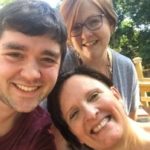
Luann Purcell Jennings (writer), Trent Sutton, and Stefanie Wheat-Johnson have, among them, more than 50 years of experience in directing, teaching, community building, Christian ministry, organizational startup, and more. They are creative, motivated, and determined to see Waco impacted by the ways that art can transform this beautiful city.
The Act Locally Waco blog publishes posts with a connection to these aspirations for Waco. If you are interested in writing for the Act Locally Waco Blog, please email [email protected] for more information.
By Mike Mellina
(This post is part of a series of posts about CASA – Court Appointed Special Advocates. – ABT)
Welcome to the third post in our CASA blog series, which provides a close up look at our advocacy from a CASA volunteer’s perspective.
Today, we have the pleasure of hearing from a tenured CASA volunteer, Mike Mellina, who includes CASA in his various volunteer activities as he seeks to give back to his Waco community.
Mike has been a Court Appointed Special Advocate for six years and is currently appointed to two cases simultaneously, which are the third and fourth cases he has had. Though most advocates are assigned to just one case at a time, Mike is a rock star who has taken on two. Each of his cases have happened to only have one child per case, so he has been an advocate for four children so far.
Before he became an advocate, Mike had no knowledge of CASA, but he saw a billboard or an ad in passing. Then shortly after, he headed to his church, First United Methodist Church Waco, and found a little CASA bookmark clipped to his church name tag with information about becoming a CASA volunteer. He decided to call and learn more, then decided to give it a shot and, as Mike says, “it snowballed from there.”
Mike has been retired for almost nine years and enjoys spending his time giving back to our community. He says volunteering is a good way to fill his time and the fact that he did have time to give helped him take the leap and get involved with CASA.
As mentioned above, Mike didn’t know much about CASA when he jumped in. He went through the training process along with a small group of other advocates, and heard from different CASA staff as well as current advocates during the training, which provided him a good view of the advocacy work involved. The training helped him realize this is not your average volunteer opportunity and that there is a lot involved with advocating for children in foster care. He was able to form a realistic view of what his volunteer role would look like. “All the CASA staff have been super supportive”, Mike said of his time as a volunteer. “I’ve never felt like I’ve been on my own.” He has been involved beyond his casework, such as with continuing education that CASA provides to advocates, and really enjoys helping with public awareness efforts or events that CASA engages in, like a CASA booth at Waco Wonderland or the annual Crawfish for CASA fundraiser event. “I’m willing to pitch in however I’m needed,” Mike said with a smile.
Mike has a bit of advice for anyone considering becoming a CASA. “Be patient and give yourself time, don’t make quick judgments. I like defined goals and no ambiguity and CASA is a lot of ambiguity. If you’re volunteering to pick up trash, you pick it up and put it in the bag. With CASA, there are so many variables. I had no idea how any of this foster care stuff works, and it takes a while to learn all that. Don’t be hard on yourself. The training is good. Rely on the staff support.” He added that even with the learning curve, it is a very doable and rewarding volunteer experience.
When asked what he has enjoyed most about his time as a CASA volunteer, Mike said “Seeing positive results for children. Seeing a kid that you may have had doubts about their chances in life and seeing, to your surprise, the outcome turned out better than you thought it could’ve been for them when you first met them and met their situation. If nobody jumps in, then maybe nothing positive would have happened.”
Mike saw this first hand with one of his CASA cases. When he first met the child involved in the case and learned the circumstances, he thought “this kid doesn’t have a chance”. But in the end, in part because of Mike’s advocacy, he was reunited with family in a safe environment. After the case had closed, Mike reconnected with him and they have kept in contact since, though without any CASA involvement. The child was 14 when the case began and is now about to turn 20, has a great job, is about to get his own apartment. Mike sees him every week and helped him complete his GED. Not only is he doing great personally, but he also chooses to give back to the community and serve in a volunteer role, much like the example Mike has set for him, and he hopes to be able to share his story with other youth in foster care.
To learn more about CASA of McLennan County and the need for more advocates, visit our website at www.casaforeverychild.org or find us on social media @casamclennan.
If you have questions or are ready to begin advocating for children in foster care, email our CASA Recruiter, Kate Gilbert, at [email protected].
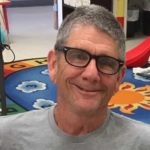
Mike Mellina is a retired Wacoan who built his entire career of 38 years at Southwestern Bell, which was purchased by AT&T. He has lived almost his whole life in Texas, except for 2 months as a baby in California. Mike began his career in Houston but transferred his job and moved to Waco in 1983, to be closer to his Dad who operated a ranch in nearby Groesbeck. Mike and his wife, Kate, raised their three kids here, who are now all grown. Mike and Kate have seven grandkids and another one on the way. Aside from his advocacy with CASA, Mike is highly involved in his church, First United Methodist Church Waco. He also gives back to our community as a Reading Buddy in Waco ISD schools and is part of the youth prison ministry out of FUMC.
The Act Locally Waco blog publishes posts with a connection to these aspirations for Waco. If you are interested in writing for the Act Locally Waco Blog, please email [email protected] for more information.
by Teresa Porter
I was born with the ability to hear.
I moved around a lot and landed in Waco around 2002. In the fall of 2003, I met my first Deaf person after he moved into the apartment above mine. One morning, he was trying to start his car, and it just wouldn’t start. After watching for a while, I approached and started asking questions.
At first I thought he was ignoring me, then he looked up and seemed startled by my presence. When he raised his hands and started signing, it was my turn to be startled. He repeated it twice. I slowly shook my head no, then turned and quickly went into my apartment for a pen and notepad. I learned several things that day, including how tiresome it can be to have a conversation with only a pen and paper.
One of the things he told me was, “We need interpreters more than we need mechanics.” Huh. Okay. So I left the Diesel program at TSTC and enrolled in MCC’s Interpreter program.
During the next several months, my eyes were opened to a new world, the Deaf World. I remember the first time I went to Deaf Club. I was overwhelmed, not just because I could barely spell my name in ASL, but by the beauty. So many people, so many hands, so beautiful, so noisy. It’s still hard to put it into words.
I learned the difference between deaf people and Deaf people. I learned about the role of interpreters, the cultural diversity, grammar rules, and the language and its dialects. I learned about the perspective, the pride, and the discrimination they face every day. I finished the program and failed the certification test, but set a goal to save money and try again. Funny thing about goals is, sometimes life happens.
You can’t outrun your genetics. I watched my grandmother slowly lose her hearing as she aged. I remember smirking at her when she said it would happen to me. She would urge me to use earplugs constantly. I laughed it off. I was so cocky. I grew up under the elbow of a mechanic, in a noisy environment using noisy tools, working on noisy engines. It never bothered me, and I could still listen to concertos and pick out a specific instrument and focus on it. My hearing was fine. Or so I thought.
One day I went to a fellow wrench-turner for help diagnosing a noise. He got in the car, I put it in reverse and backed out of the parking space. He got a strange expression on his face. I put it in drive and slowly rolled forward. He insisted I stop the car. He told me he wasn’t going anywhere with me until I changed the wheel bearings. I argued with him a little. I didn’t hear it. We put the car on the lift and he spun the tires. I still didn’t hear it. We disassembled one wheel. The bearing fell apart in my hand. All four wheel bearings were on the verge of locking up. We probably would have died if we had taken the car on the interstate to duplicate the noise.
I scheduled a hearing test, and left the audiologist’s office numb with brochures on hearing aids and hearing loss. I was 30. I lived in denial. I didn’t buy the hearing aids, I didn’t start using earplugs. I didn’t even cover my ears when I stood next to a race car.
For years my work schedule conflicted with Deaf Club, so I lost touch. After graduating from the program, to keep my skills from completely deteriorating, I volunteered at the Heart O’ Texas Speedway as their interpreter. Five years ago, I began having trouble understanding the announcer. Three years ago, I made my confession to the promoter. I can’t understand the announcer at all anymore. I still hear the noise, but it’s just noise. To my surprise, he told me to keep doing it. I can’t call myself an interpreter because that’s not what I do anymore. I’m the announcer for the Deaf.
Five years ago, it became harder to live in denial. I was managing a small repair shop doing everything except turning wrenches, slowly becoming increasingly frustrated with the telephone. I didn’t mind that it rang constantly, but I was really struggling to understand women and anyone with an accent. There were times that I would answer the phone, hear noise and say, “I’m sorry, a little louder and a little slower.” Noise again. “I’m sorry, one more time please?”
If they repeated the exact same phrase the exact same way, I was able to figure out what they were saying. If they changed what they said, I had to ask for more repeats. Eventually they would hang up.
There were days I got so frustrated that I would stop asking for repeats and tell them, “Look, if you found the phone number, you found the email address. Just send me an email.” Within a year I was having trouble understanding men too.
I had to tell the business owner that I could no longer perform that particular function of my job. I started trying to learn to lipread. I lost the ability to listen to the radio. (Oh, how I miss NPR!) I lost the ability to watch television without captions. I began to notice how many videos, livestreams, webinars, conference calls, etc. have no captions. It seems like a new podcast or radio interview pops up daily, sometimes an acquaintance will ask if I heard it. I smile through the small twinge of pain and ask if there’s a transcript available. They look at me like I’m from another planet. Sometimes I contact the radio show host and request a transcript, only to be ignored.
If it’s something really important, I will open one of the speech-to-text apps on my phone and play the video or audio recording. The translations can vary in accuracy, so sometimes I have to replay it multiple times using different apps, then try to piece the transcripts together and try to make sense of it. I think it’s weird to see captions on sign language videos like The Daily Moth, but no captions for WCCC-TV. If it’s important enough to tell hearing people, isn’t it important enough to tell Deaf people too?
Last year I got my first pair of reading glasses. Several months ago I noticed I was struggling to lipread more than I ever had before. I was getting more headaches, my eyes were hurting more, I was more exhausted by the end of the day. I got my eyes checked again, still the same as last year, but I noticed I had more trouble understanding the optometrist.
I hadn’t had a hearing test in a decade, so I made the appointment for the audiologist. I just knew I would end up getting a sales pitch for a hearing aid. I wasn’t expecting to see the words “too profound” and “cochlear implant.”
I played it cool as I left the office, but a few blocks away it hit me hard. Grandma wasn’t this deaf until she was 60. It’s happening too fast. Yeah, well, grandma spent her time in quiet classrooms, not around noisy race cars. Environmental plus genetic equals accelerated deafness.
Waco has a small Deaf population when compared to cities like Austin, so many people are ignorant about the federally protected rights of Deaf people. The Americans with Disabilities Act is more than 30 years old, but many businesses are unaware of their responsibilities. The ADA is a lot more than wheelchair ramps, braille, and service animals. It’s about equal access to communication and information. Federal law says you are required to provide “reasonable accommodations.”
We can negotiate on what those accommodations are, but you can’t exclude me. Expecting me to lipread around a microphone in bad lighting is unreasonable. Expecting me to lipread the back of someone’s head or the side of someone’s face is not only unreasonable, it’s impossible. Expecting me to understand more than half of what you say without an interpreter is unreasonable. Telling me I have to request an interpreter more than two weeks in advance is just ridiculous.
As my world slowly becomes quieter, I find myself more isolated. I’m alone in a crowded room filled with hearing people. Someone tells a joke, they laugh. I smile, but I have no idea what was so funny. I can only read one set of lips at a time, and some lips have no words on them. Lipreading is very difficult, and it’s very visually taxing and tiring.
My speech is still clear, I can still speak without an interpreter. I see the strange looks when I request an interpreter. I’ve even been told, “You’re not deaf.” I say, “Hear the world through my ears for one day and see for yourself.”
I speak to accommodate you. I’m not asking for an interpreter because I can’t hear, but because you don’t sign. You do want me to understand everything you say, right?
This isn’t the path “normal” people take. There is no guide for this transition. I still have a lot to learn and relearn as my hearing continues to fade. I wouldn’t know how to cope with this loss if I didn’t know about the Deaf World. I see every Deaf person as a role model. They are beautiful, strong, and so intelligent. Thanks to the local Deaf community, I know I’m not alone. Once a month, for a few short hours, I don’t have to struggle to lipread. They are my strength, my teachers, my future.
Thanks- not only to the local Deaf community, but also to famous Deaf people like Bernard Bragg, Peter Cook, Marlee Matlin, Ken Glickman, Nyle DiMarco, and so many more, my perspective is changed. This is a gift. I’ve never met a “dumb” Deaf person, but I’ve met plenty of dumb hearing people. I am not losing my hearing, I’m gaining my Deafness. I’m not disabled, I’m differently-abled. I am not “hearing impaired”, they are “Deaf impaired.” The saying is, if you love someone, you show it. Love isn’t blind. Love is DEAF.

Teresa Porter is a native Texan, automotive enthusiast, and novice gardener. In her spare time, she is a freelance writer, researcher, and community activist.
The Act Locally Waco blog publishes posts with a connection to these aspirations for Waco. If you are interested in writing for the Act Locally Waco Blog, please email [email protected] for more information.
(This post is part of a series of posts about CASA – Court Appointed Special Advocates. – ABT)
By Chelsea Oliver, LMSW
When members of our community commit to volunteer with CASA of McLennan County as a Court Appointed Special Advocate, they are matched with a full time CASA staff member, their CASA Supervisor. Our CASA Supervisors are child welfare experts whose job is to support, coach and guide the CASA volunteers in their advocacy for children.
Read on for some Q&A with one of our CASA Supervisors, Chelsea Oliver.
What brought you to the CASA team?
My degree is in social work with a children and families concentration, so I have always had a heart for serving vulnerable populations. What drew me to CASA specifically is the unique role that we are able to play as advocates for abused and neglected children. The opportunity to truly make an impact in their lives and have a rich connection with them throughout their journeys in foster care is a responsibility and a privilege I do not take lightly. It is an honor to work alongside our CASA volunteers and the professionals in this realm while building personal connections with these children in working towards their best interests to find a safe, loving, and permanent home.
Describe your role as CASA Supervisor. How do you guide and coach advocates in their casework?
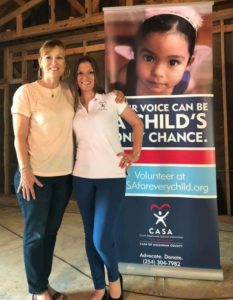
As a CASA Supervisor, I am here to be a guide to our advocates through the CPS process. I help them navigate through their advocacy and case. What this looks like on a routine basis is explaining the processes involved, answering any questions they have, and helping them in speaking with professionals in the field. I also join them on visits with the children or meetings with other professionals and work alongside them as they write their reports to the court. I provide examples and help gather information as needed, as well as provide revisions where needed before submission. We meet monthly to discuss the case. provide updates and make a task list for the next month as well.
What are some ways you support and empower your advocates beyond the technical coaching and supervision?
One of my favorite things to do is to send thank you cards to our advocates. I love being able to support them on a personal level. I also routinely send birthday cards and I try to send out regular e-mails updating them on what is going on within CASA at the moment. I try to really get to know my advocates – Who are they? What do they enjoy and what is important to them? What is going on in their lives? Building up some personal camaraderie can be a good foundation for teamwork.
What are some characteristics you look for in a quality advocate?
The most important thing to building a supportive relationship is communication. I always step in to help my advocates where they need me, and communication is key to that process. Also, it is important to be able to see outside of our own lenses in terms of different cultures and family dynamics. Volunteers who understand and value each child’s individuality and their different family backgrounds make for outstanding advocates who really bond with and empower the children and families we work with.
To learn more about CASA of McLennan County and the need for more advocates, visit our website at www.casaforeverychild.org or find us on social media @casamclennan.
If you have questions or are ready to begin advocating for children in foster care, email our CASA Recruiter, Kate Gilbert, at [email protected].
Stay tuned for further weekly installments of our CASA story, with upcoming posts from two CASA advocates!

Chelsea Oliver, CASA Supervisor, CASA of McLennan County, is originally from Lorena and currently lives in McGregor with her husband and two kids. She is a Licensed Master Social Worker and has a Bachelor of Social Work degree from Tarleton University and a Master of Social Work degree from University of Texas at Arlington. Chelsea has past experience with elderly and medical social work and has enjoyed returning to her passion of working with children and families in her work at CASA.
The Act Locally Waco blog publishes posts with a connection to these aspirations for Waco. If you are interested in writing for the Act Locally Waco Blog, please email [email protected] for more information.
By Jeni Janek
“Counselors were on campus today in response to….”
We’ve heard it a hundred times in the media and cringe at the stories that follow these words, reporting the loss of yet another youth to the tragic phenomenon of suicide. What most do not realize is the impact and response that ensues and the taxing amount of time and emotional capital spent by educators and school personnel on campus who comfort survivors, wade through the shock and try to find answers that rarely come.
When a tragedy such as student or school employee death occurs (whether it be a suicide, accident or of natural cause) Education Service Center (ESC) Region 12’s Crisis Response Team launches into immediate action to serve on-site and/or behind the scenes to help those who are caring for their students and colleagues. Our kids grow up in our Texas schools, and a school is one big family–a loss is felt across campuses and reverberates in the community.
ESC Region 12 employs specialists whose job is to do one thing: serve educators and students. There are one-to-one counterparts for nearly every role in the typical school environment. Their duties range from conducting professional development to designing resources for school personnel as they instruct and care for the 161,000 school children in our region each day. One area of this work is to help our schools in their greatest time of need: when they lose a student or an educator.
In the last seven years, ESC Region 12 has worked in this role with others to ensure that school leaders and their teams have the resources and support needed to resume operations in the wake of fatalities. Suicide has been the number one reason that the ESC Region 12 Crisis Response Team responds to schools in our region. It has become an epidemic not only in Central Texas but in our state. The national average for suicide attempts among teens is 7 percent (according to the CDC’s Youth Risk Behavior Surveillance Survey, 2017), while Texas sits at 12 percent.
While suicide is an epidemic, it is a preventable one. It’s for this reason that the Education Service Center Region 12 has hosted the Teen Suicide Prevention Symposium for the last 14 years. ESC Region 12, Cedar Crest Residential Treatment Center, Providence Ascension Healthcare Network and the Methodist Children’s Home will present this year’s symposium on Thursday, June 13 at ESC Region 12, 2101 W. Loop 340 in Waco.
Medical and mental health speakers will share research and strategies for helping youth who struggle with suicidal ideation.
Social media continues to be a factor in teen suicide, but efforts to raise awareness about healthy practices and reporting options are making a difference in Central Texas schools. How else as a community can we make a difference? We can bring people together to discuss and implement strategies and resources that will help keep our kids safe. Educators may often be the first to see signs, but we as a community must reach out and offer more than supportive words.
Our children are living during an unprecedented age of technological advancement and interaction, but are still needing strong relationships (in school and in their communities) to help them grow up to be safe and healthy adults. They are depending on us to help them navigate challenges and not just survive, but to thrive.
Seats are available for $90 a participant, which includes a light breakfast and lunch. Click here to register: Suicide Symposium.
ESC Region 12 is a nonprofit service organization devoted to supporting educators and school personnel in their efforts to increase student achievement. We are passionate about helping schools of all sizes through effective professional development, expert assistance, direct services and alternative certifications. Click here for more about ESC Region 12.
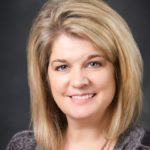
Jeni Janek is the ESC Region 12 Crisis Response Team Leader and serves school counselors in the Region 12 area. She is a graduate of Stephen F. Austin with a Bachelor of Science degree in Rehabilitation and Psychology and received her Master degree in Counseling Psychology from Tarleton State University. Janek is a certified school counselor and a Licensed Professional Counselor (LPC). Jeni and her husband Chris live in West with their son, Trey. Their daughter, Mary Kate, is a junior at Texas A&M. Janek enjoys traveling, being outdoors, and relaxing on the back porch of their country home with her faithful dog, Beau.
The Act Locally Waco blog publishes posts with a connection to these aspirations for Waco. If you are interested in writing for the Act Locally Waco Blog, please email [email protected] for more information.
By Maggie Sanders
June 21 is the day with the most light, and that’s when the Alzheimer’s Association shines light on this sad disease that robs loved ones of memories and personality. But when you’re caring for someone with Alzheimer’s or another dementia, every day can seem to last more than 24 hours.
My mom, Vivian Benson Sanders, is living with one of the severe dementias associated with Alzheimer’s disease. At 15, she was offered a full scholarship to Rice University – located less than two miles from her home – but her father refused his permission for her to attend. Now 94, she still painfully recalls how he stole her future.
But she doesn’t recognize me, my brothers or our children. Nor does she recall that my father passed six years ago and that our middle brother died two years before. She can’t remember how to walk and struggles with all activities of daily living. This scary smart lady who treasured words like precious jewels is losing her grasp of language, and our conversations are becoming a hodgepodge of unrelated and often unintelligible words and phrases.
When it became obvious four years ago that Mama could no longer live independently, our family decided to move her from Bryan, where my brother Ray had been looking after her, to Waco. At that point, I became her primary caregiver and began juggling work, my own family and other interests with meeting her needs. These have increased over the years, so two years ago I retired from the part-time teaching job I loved to be more available.
Fortunately, my mom is in a good memory care facility, but I still spend a lot of time and energy with her. She’s among the nearly 400,000 Texas adults over 65 who have Alzheimer’s disease or other forms of dementia. And I am just one of the approximately 1.5 million family members and friends caring for a loved one in the same situation.
The care takes its toll on our bodies, minds and spirits — and drains family finances. In Texas last year, caregivers provided approximately 1.6 billion hours of unpaid care with a total value of $20.5 billion. We deal with stress, lack of sleep and lack of support. We are reminded to take care of ourselves, but that doesn’t always seem possible.
My caregiver’s journey has been eased thanks to the local Alzheimer’s Association chapter. Even before I moved my mom to Waco, I had helped with the annual Walk to End Alzheimer’s, and that helped me tap into some of the resources the group offers. I’ve since attended several support groups and the annual caregivers conference. I continue to work with the walk committee and try to volunteer with other projects as needed.
Locally, the Waco Chapter of the Alzheimer’s Association provides a range of caregiver support groups where family members can meet others sharing similar situations.
- Heart of Waco Caregiver Support Group, 6-7 p.m., Second Monday of each month at Heartis Waco Assisted Living and Memory Care. Contact Donna Ginsel at 254-717-4805 or Bobby Don Saylor at 940-595-9355.
- Hillcrest Senior Health Center, 10-30-11:30 a.m., Second Wednesday of each month at the Hillcrest Senior Health Center. Contact Renee Shepherd at 254-537-3731 or Laura Ellis at 254-202-6500 or Bobby Don Saylor (above).
- Early Stage Support Groups. Separate sessions allow Caregivers and Persons with Disease to meet separately for support, information and socialization. Prescreening is required. Contact Christine Schroeder-Moran of the Waco Alzheimer’s Chapter at 254-754-7722.
- The Gathering Place provides social interaction and support for caregivers and their loved ones. The program meets from 10-11 a.m. the first Tuesday of each month at Austin Avenue Methodist Church. Contact Sandi Snowden at 713-553-7061, Pam Butler at 254-755-2248 or Bobby Don Saylor (above).
- The annual Caregivers Conference, always the first Friday in March, is an excellent opportunity to hear about the latest research and to gather tools you can use in your own journey.
- This year’s Waco Walk to End Alzheimer’s will be Saturday, October 5, at Brazos Park East.
To learn more about these resources or to ask questions, contact the Waco Chapter Alzheimer’s Association at 254-753-7722 or alz.org/northcentraltexas
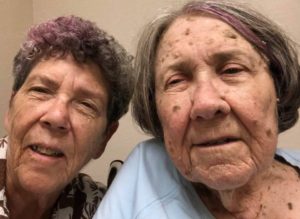
Maggie Sanders is a freelance artist and writer. She retired from McLennan Community College, where she worked in the public information office and taught marketing.
The Act Locally Waco blog publishes posts with a connection to these aspirations for Waco. If you are interested in writing for the Act Locally Waco Blog, please email [email protected] for more information.
(As I’m sure most of you probably know, one of our Prosper Waco community goals is “McLennan County residents will live healthier lifestyles and access the best available care.” With that in mind Act Locally Waco is teaming up with Better Living for Texans to bring you a monthly blog post full of tips for healthy living. For more of the posts in this series, click here: Better Living for Texans.– ALW)
By Lindsey Breunig
Summertime is here! You might be free from the classroom or still stuck in the office, but we cannot hide from the fact that with summertime comes higher temperatures. Recently I have found myself turning the fan on or up to combat the heat. As Texas begins to warm up, we need to protect our bodies from the hotter temperatures. Keep safe by remaining hydrated which means we are replacing water that has left our bodies. Today the focus is water because what better way to replace water than with water!?
Plain and simple water is critical to our overall health. It is widely accepted that humans can survive for more than a month without food, but only a few days without water. Water helps transport nutrients to working muscles, while also transporting waste products through urination, perspiration, and bowel movements. Water also helps digest our food and lubricates our joints, organs, and tissues, and protects your spinal cord and other sensitive tissues. Additionally, water keeps your temperature normal, so no wonder you need more water during the summer season! As temperatures begin to increase let’s think of ways to get more water in our diet.
While sweet drinks are delicious, it is better to choose water instead of sugar-sweetened beverages. This helps in preventing cavities and with weight management. Substituting water for one 20-ounce sugar sweetened soda will save you about 240 calories.
If you enjoy the sweet side of sodas try switching to 100% fruit juice. To reduce even the natural sugar, try to mix the juice with water. Now, before you call me crazy, (trust me it has happened) try by adding just a little water. For example, start with a ratio of ¾ juice to ¼ water – it might not taste as sweet, but you can slowly work your way to less juice and more water. Before you know the flavor is still there, sugar is reduced, and you have saved money!
If you enjoy the fizz of sodas try switching to sparkling water. There are many brands and flavors on the market but try the plain and add your own sweet flavor. Something I have done is add a splash of juice or frozen fruit that will infuse the drink. You may have seen the drink infusers at the store or online which take water to another level by adding new flavors to plain or sparkling water. When using plain water, you can let the fruit infuse over a couple hours. Think of your favorite juice combos and try to recreate! Some fruit and veggie combos to try are below:
1. Strawberries + Kiwi + Cucumber
2. Cucumber + Lemon + Lime
3. Orange + Lemon + Lime
4. Raspberries + Lemon + Mint
5. Blueberries + Lemon
In addition to drinking water, we can also get water through the foods we eat. Eating foods with high water content adds volume but minimal calories to the diet. Foods with high water content promote a feeling of fullness. Fruits and vegetables are two food groups that have generally high-water content.
Fruits that are high in water content are: watermelon, citrus fruits, grapes, apples, papaya, and strawberries. Vegetables that are high in water content are: carrots, bell peppers, lettuce, tomato, cucumber, squash, and broccoli. Did I mention a favorite? Great, stock up for the summer!
This month we have two refreshing fruit and veggie drinks to try from the Texas A&M AgriLife Extension’s Dinner Tonight program! (https://dinnertonight.tamu.edu/) The below recipes will be more flavorful than infused water but full of natural sweetness (0 grams of added sugar). Check them out and this summer, hydrate, hydrate, hydrate!
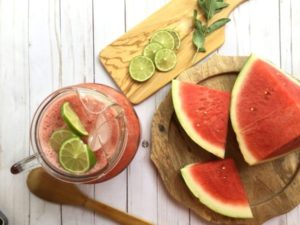
Aguas Frescas Watermelon and Lime (https://dinnertonight.tamu.edu/recipe/aguas-frescas-watermelon-and-lime/)
Ingredients:
- 5 cups seedless watermelon cubed
- 3 cups water divided
- 5-6 mint leaves
- 1 lime sliced for garnish
- 1 cup Ice
Instructions:
- Combine watermelon, 1 cup of water, and mint leaves into a blender untill liquefied.
- Pour the watermelon mixture into a 2 quart pitcher, add 2 cups of water and ice, stir together.
- Garnish the drink with thinly sliced lime rings and enjoy.
- Serve or store in refrigerator up to 2 days.
- Tip: Use a strainer when pouring the liquefied watermelon into the 2 quart pitcher for a thinner consistency.
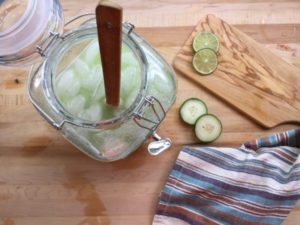
Aguas Frescas Cucumber and Lime (https://dinnertonight.tamu.edu/recipe/aguas-frescas-cucumber-and-lime/)
Ingredients:
- 2 medium Cucumbers peeled and sliced
- 5 cups water divided
- 1 Lime with peel wedged
- 1 cup Ice
Instructions:
- Combine cucumbers with 3 cups of water in blender until liquefied.
- Using a strainer over the mouth of a 2-quart pitcher, pour half of cucumber mixture slowly to strain the liquid.
- Add the wedges of a lime to the other half of cucumber mixture in blender. Blend together for a few seconds until chopped up into medium pieces. **Note: Blending the lime longer or into smaller pieces may give a bitter taste.
- Pour the remaining mixture over strainer.
- Add 2 cups of water and ice into the pitcher and stir well.
- Serve or store in refrigerator up to 2 days.

Lindsey Breunig is a graduate of Baylor University and currently works as the Better Living for Texans Educator for the Texas A&M AgriLife Extension Service. She is originally from Grapevine, TX and now calls Waco home. Here in Waco she loves to venture out to Cameron Park, visit the local Farmers Market, and try out the awesome eateries in Waco. If you see her and hear a loud bark, that’s her pup Lucy just saying hello.
The Act Locally Waco blog publishes posts with a connection to these aspirations for Waco. If you are interested in writing for the Act Locally Waco Blog, please email [email protected] for more information.
By Phillip Ericksen
In May, the McLennan Community College Board of Trustees, a seven-member board of elected officials that represents different parts of the county and provides oversight of the College, approved a new set of values meant to guide all decisions related to student success.
Here are the new values:
People matter – We will be honest, humble, respectful, and gracious to our students and to each other. We best serve our students, colleagues, and community when we work as a team.
Inclusiveness matters – We will seek to appreciate and understand our students and each other, actively seeking different viewpoints. We will work to create a civil, welcoming environment where our diverse community of students and employees learn, teach, and work together.
Integrity matters – We will work with the highest level of integrity, taking responsibility for all of our actions. We will tell the truth and seek to be fair in our decision-making and actions.
Communication matters – We will be open, collegial, and courageous in our communications with students and with our colleagues. We will listen before we speak. We will communicate decisions and the reasons for them.
Excellence matters – We will strive for excellence in all that we do. We will actively plan for the future, seeking new and innovative ways to accomplish our mission.
A new mission statement was also approved:
Our mission is to educate our students – improving their lives and enriching our community.
So why are these words important? They set the stage for the future of MCC – a college that serves almost 9,000 students and places them on a road to success while offering services meant to combat food insecurity, mental health setbacks, and more.
MCC President Dr. Johnette McKown said a series of listening sessions with students, employees, and community stakeholders helped shape the values. The College’s leadership team read two books that provided important background during the process: “Tribal Leadership: Leveraging Natural Groups to Build a Thriving Organization,” and “Seven Strategy Questions: A Simple Approach for Better Execution.”
“We anticipate these values of People, Inclusiveness, Communication, Excellence, and Integrity will guide our future and our culture,” McKown said. “We must all be working together to make a difference for our community. These values frame our vision for today and for the future.”
The values reflect MCC’s strategy for the next 10 years: help all students succeed, take care of people, impact the community, and develop resources to fund success.
For example, College administrators plan to redouble their efforts in addressing students’ pressing personal issues, like transportation, food insecurity, and financial insecurity. Partnering with local entities to solve these problems and exploring ways to cut costs should take pressure off students looking to advance in their careers and improve their lives.
Improving communication and collaboration across campus will also help all employees serve students and the community. McKown, for example, hosts monthly hour-long events for faculty and staff known as “Coffee and Conversations,” where she can hear their feedback.
Living out these values on campus and in the community will further position MCC as an institution that is welcoming, affordable, and relevant within higher education.

Phillip Ericksen is the marketing and communications specialist at McLennan Community College. For about four years, he was a journalist at the Waco Tribune-Herald covering higher education and local government. He enjoys following the news, reading books and drinking coffee. As a San Antonio native, he is an avid fan of Mexican food and the Spurs basketball team. He holds a bachelor’s degree in journalism from Baylor University. He can be reached at [email protected].
The Act Locally Waco blog publishes posts with a connection to these aspirations for Waco. If you are interested in writing for the Act Locally Waco Blog, please email [email protected] for more information.
By Anna Futral
(This post is part of a series of posts about CASA – Court Appointed Special Advocates. – ABT)
I would imagine that many of you reading this grew up in a pretty good home. I grew up on 30 acres outside Fredericksburg TX with four (mostly) fabulous siblings and two parents who worked hard to care for us, keep us safe and raise us into mature adults. I had an amazing childhood.
But there are many children in our community right here who barely get a childhood at all, much less a safe and happy one. Children like 9 year old Amanda who, after trying to hide her bruises for months, through no fault of her own, finds herself in the backseat of a stranger’s car, the few belongings she was allowed to grab crammed in a trash bag beside her, being driven to the home of more strangers, foster parents, where everything is new and different. At her young age, life as she knew it has been turned upside down and she has no idea what the future holds.
This is the point when CASA can enter the scene, a point of fear, loss, confusion and unknown. When a child is removed from their home by CPS due to abuse or neglect, and sent to live with relatives or foster parents, a Court Appointed Special Advocate can become a strong presence in the child’s life. The CASA works alongside other professionals to make sure that child’s needs are met while they are in foster care, to learn their specific case situation and make recommendations to the judge across the case regarding the safety, permanency and best interest of that child.
There are almost 700 children in foster care in McLennan County, but only about 150 of them have a CASA volunteer. We are in need of many more advocates to step up and be a voice for children in our community.
A Court Appointed Special Advocate can come from all walks of life and does not need to have prior experience with the child welfare system or child development. Our advocate team includes grad students, working professionals, stay at home parents and retired individuals. While some come from a background of personal or professional experience with child welfare, most are regular community individuals who just want to directly affect the life of a child for the better.
We are looking for caring, committed adults who meet the following criteria:
- At least 21 years of age
- Pass screening, background check and training requirements
- Able to make a one-year minimum time commitment to a case (about 10-15 hours per month)
- Able to keep information confidential and work within established program guidelines
Our agency provides flexible, quality training to prepare our volunteers for their advocacy work and then matches each new advocate with a full time CASA staff member, a CASA Supervisor, to guide and coach them in their volunteer work. This volunteer to Supervisor relationship is where the rubber meets the road for our quality advocacy, as the Supervisor provides knowledge and support while empowering the volunteer to be a strong voice for their appointed CASA child. Our volunteers are highly valued members of our CASA team and we do all we can as a staff to set them up for a meaningful volunteer experience.
To learn more about CASA of McLennan County and the need for more advocates, visit our website at www.casaforeverychild.org or find us on social media @casamclennan.
If you have questions or are ready to begin advocating for children in foster care, email our CASA Recruiter, Kate Gilbert, at [email protected].
Stay tuned for further weekly installments of our CASA story, with upcoming posts from a CASA Supervisor and two advocates!
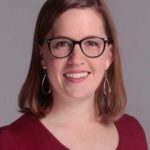
Anna Futral is Executive Director, CASA of McLennan County. Though born and raised in Fredericksburg, Anna has called Waco home for fifteen years. She is a graduate of Baylor University, where she received her Bachelor of Business Administration in Accounting and a Master of Taxation. She and her husband, Trent adopted their three children in 2016 after over two years of caring for them and loving them as a foster care placement. When she’s not busy leading CASA forward or chasing her kids Anna enjoys reading, spending time with good people and working with her husband on their 119-year-old house in the heart of Waco.
The Act Locally Waco blog publishes posts with a connection to these aspirations for Waco. If you are interested in writing for the Act Locally Waco Blog, please email [email protected] for more information.
Press release – Please join Lake Brazos Rotary Club for a weekend of fine wine and dining in downtown Waco as we raise money for Talitha Koum Institute. Everyone is welcome to attend one or both nights. Barnett’s Public House has carefully selected all of the wines for this charity event.
The World of Wine fund-raiser begins on Friday, June 7th, with a VIP dinner featuring the gourmet creations of Leah Stewart, owner of The Olive Branch. This event is from 6 p.m. to 10 p.m., with dinner starting at 7 p.m. Click here to preview the menu for Friday night.
The fund-raiser continues Saturday evening, June 8th, with a wine tasting that will include a silent auction, buffet, wine pull, and discounted cases of featured wines. The wine tasting is from 5 p.m. to 8 p.m., with VIPs having the option of arriving as early as 4 p.m.
Each ticket for Friday’s VIP dinner costs $175 and includes free entry to Saturday’s wine tasting. Individual wine-tasting tickets are $35.

